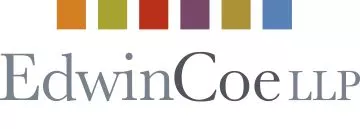But how successful is the insolvency strategy of the obstructive spouse? A number of recent cases have caught the headlines, such as those involving the late Scot Young and Michael Prest. In each case a husband sought to frustrate his former wife, and the Court, by hiding his assets in response to a claim for financial support.
What may not be familiar to practitioners advising spouses in similar situations is the provisions in the Insolvency Act 1986 (the Act) that may assist in setting aside a transaction entered into by the obstructive spouse who is subject to an insolvency procedure, such as a voluntary arrangement or bankruptcy. For example, section 423 of the Act includes provision for not just a Trustee in Bankruptcy (TiB) but any creditor or victim (including a spouse with an unsatisfied financial order) to seek to set aside avoidance transactions.
The Court will need to be satisfied that the bankrupt has deliberately put the asset out of reach of his creditors but it is enough that the intention to put assets out of reach is a substantial factor rather than dominant purpose. Moreover section 423 is extra territorial, whilst limitation is also benevolent: in any action brought by the "victim", limitation is 12 years; and if the obstructive spouse is insolvent, the TiB has 12 years from his appointment to apply to the court. In those circumstances, a Bankruptcy Judge can, amongst other things, order the transfer of assets back to the debtor's TiB or even to the aggrieved spouse, as was the finding in a recent case in which we acted for a "victim".
Practitioners will also be familiar with the scenario of a TiB challenging a former spouse's entitlement to an asset that was transferred pursuant to an order in ancillary relief proceedings. In light of the recent case of Sands v Singh [2016], where the TiB failed to show undervalue in the transaction, a TiB will find it harder to overturn such a transfer in the absence of dishonesty or collusion between the parties. But how does that sit with section 423 of the Act? What happens where the evidence suggests lawyers for one spouse knew of the imminent bankruptcy of the other spouse but did not share this information with their client or the Court, as happened in a recent case in which we acted for the TiB? Moreover, a TiB has additional power to challenge periodical payments on the basis that the receiving spouse is being preferred to other creditors.
Finally, be aware of the trapdoor that is section 284 of the Act, which declares any transaction entered into by a debtor between the presentation of a petition and a bankruptcy order is void. This includes property adjustment orders; the unwitting matrimonial court is not validating the obstructive spouse's scheme, which may still be set aside by the Insolvency and Companies Court.
The content of this article is intended to provide a general guide to the subject matter. Specialist advice should be sought about your specific circumstances.






